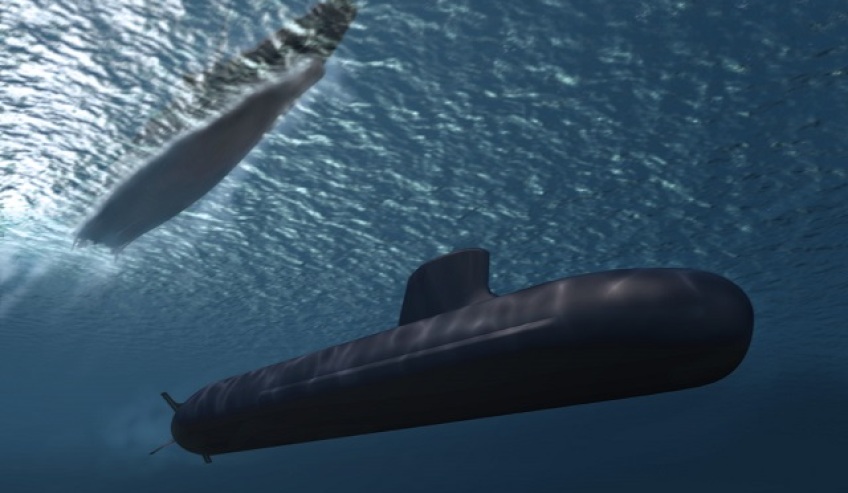The Next Generation Technologies Fund is inviting universities and industry to submit applications for new acoustic materials to improve the stealth capabilities of underwater vehicles.
To continue reading the rest of this article, please log in.
Create free account to get unlimited news articles and more!
Defence is looking for advanced material technologies to reduce the acoustic signature of submarines without disrupting their operation.
The development of novel acoustic materials seeks to leverage acoustic science, materials science and engineering, technology and innovation across Australia to develop new technology solutions of relevance to Defence. The goal of this proposal is to inform Defence of the potential benefits and practical limitations of advanced acoustic materials through studies and delivery of prototype materials.
Prototype materials should demonstrate capabilities that are either unique to acoustic materials, or which are significantly superior to conventional materials. Furthermore, materials need to be feasible and have realistic maturation pathways.
Application details
Defence Science and Technology (DST) Group is seeking proposals from industry, academia and government research agencies to contribute to research that has the potential to result in the development of Defence-relevant advanced acoustic materials.
Proposals should address either or both of the following priority areas:
- Design of advanced acoustic materials from first principles, using multi-scale integrated computational materials engineering (ICME) techniques; and
- Experimental development of acoustic materials.
Multi-scale ICME of acoustic materials
The basic ingredients of a strategic approach towards advanced materials design using ICME techniques are:
- Allowing for the use of existing and verified models to a maximum extent: extendable and modular;
- Closing existing gaps in the present manifold of models by mapping the materials and the process chain, aiming at the provision of a comprehensive concept;
- Speeding up individual models by data reduction where applicable: adaptable;
- Speeding up individual models by efficient programming: efficient;
- Enabling and speeding up information exchange between different models: standardised;
- Integrating different process scales (length, time): comprehensive and adaptable;
- Being useful for different types of materials and processes: generic and/or adaptable;
- Model refinement or model reduction where necessary and/or beneficial: extendable and modular;
- Facilitating the creation of simulation chains by drawing on prior knowledge: self-learning and knowledge integrative; and
- Software development and/or combination of available software tools to accommodate ICME simulation chain.
Experimental development of advanced acoustic materials
Development of prototype acoustic meta-materials should address:
- Choice and availability of materials;
- Micro/macro-structures and composite layout;
- Material development process(es);
- Material test and characterisation and data analysis;
- Material and process optimisation; and
- Pathways for scale-up from a prototype to industry manufacture.
Proposals are sought for up to two years and six months in duration. The proposals should consider a work program that will be split into two phases. Successful proposals will be funded for 'Phase 1' (six months) and then re-assessed by Defence stakeholders and subject matter experts prior to any commencement and funding of 'Phase 2' (two years) activities.
Outcomes will be tied to agreed deliverables and subject to ongoing review. Proposals should include a description of the context of the research within the broader acoustic materials landscape, and should outline proposed areas of Defence application.
Proposals are expected to receive funding of up to $150,000 per year. Successful proposals should include an in-kind contribution from the participant(s) and detail any proposed co-funding.
Proposals should also detail proposed collaborative partnerships involving DST. To the extent that it can be practically achieved, DST seeks to be an active partner in all research projects supported by the Next Generation Technologies Fund.
Proposals must be submitted by 8 February 2019. More information or submit a proposal is available here.
Stephen Kuper
Steve has an extensive career across government, defence industry and advocacy, having previously worked for cabinet ministers at both Federal and State levels.

 Login
Login








